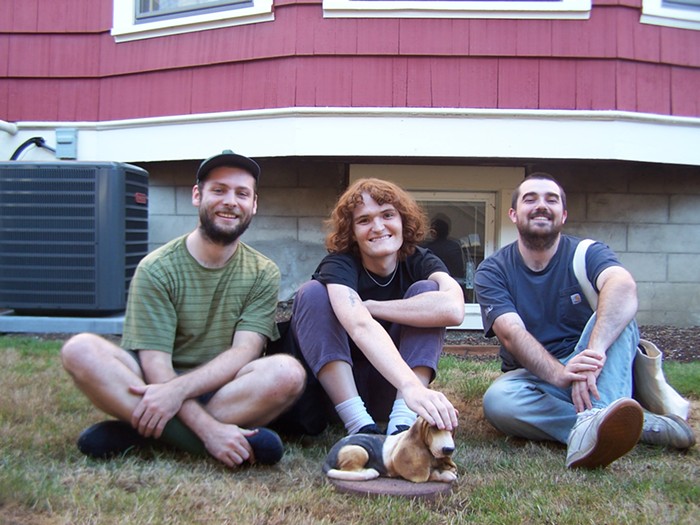"THE THING IS, I want to write songs!" Rex Marshall says near the end of our conversation at a downtown diner. He says this with a chortle and zeal you might not expect from the founder of Mattress, whose new album Low Blows boasts 10 elegantly bleak masterpieces of the micro-genre first heard on Iggy Pop's The Idiot and streamlined by electro pop's first wave: the dystopian torch ballad.
It wasn't mere '80s nostalgia that drew Marshall to synths. The groundwork of his appreciation for Gary Numan and Suicide was laid by his love of author J.G. Ballard, the sci-fi bard of synth-pop. Ballard spoke to Marshall's own pangs of future shock. "I'm overwhelmed by the pace culture's moving in," Marshall says with another chortle. "There no longer seems to be a zeitgeist. Or there are 1,000 tiny zeitgeists."
Marshall knows about lonely cultural islands. He grew up in Las Vegas, where both parents worked in casinos and the teenage fan of Howlin' Wolf developed a non-ironic appreciation for "'70s-style entertainers" (a mark that has been left on his singing style, a warped and warbled croon). Marshall spent most of his young adulthood writing songs and novels, "not getting very far with either." In 2006, collaboration with noise-pop outfit Argumentix finally brought Marshall out of his shell when they co-released the apocalyptic song-cycle Echo Scratch Finale.
Three years and three Mattress albums later, Marshall has pared down the busy noisescapes of Eldorado, his 2006 solo debut, to unveil the blues-based core of his songcraft. In an age of infinite overdubs, Low Blows' sparse arrangements stand out. Rather than layering synths and effects, Marshall takes pains to craft singularly rich sounds on the Moog and Casio keyboards which see his sturdy melodies through.
This work inevitably leads back to Ballard, whose greatest contribution to the synth-pop legion was the convincing texture of his hyper-modern worlds. "As frightening as it is," Marshall says, in an aside that seems to spill out from a lifelong train of thought, "Ballard really showed that the future is the place to be."



















